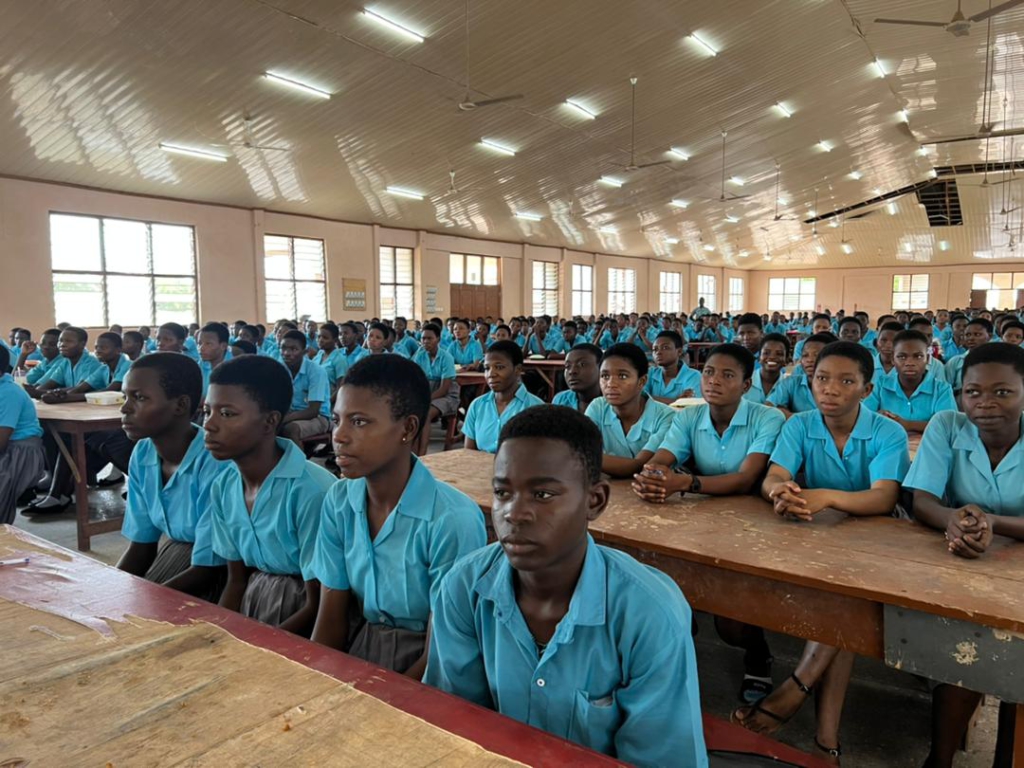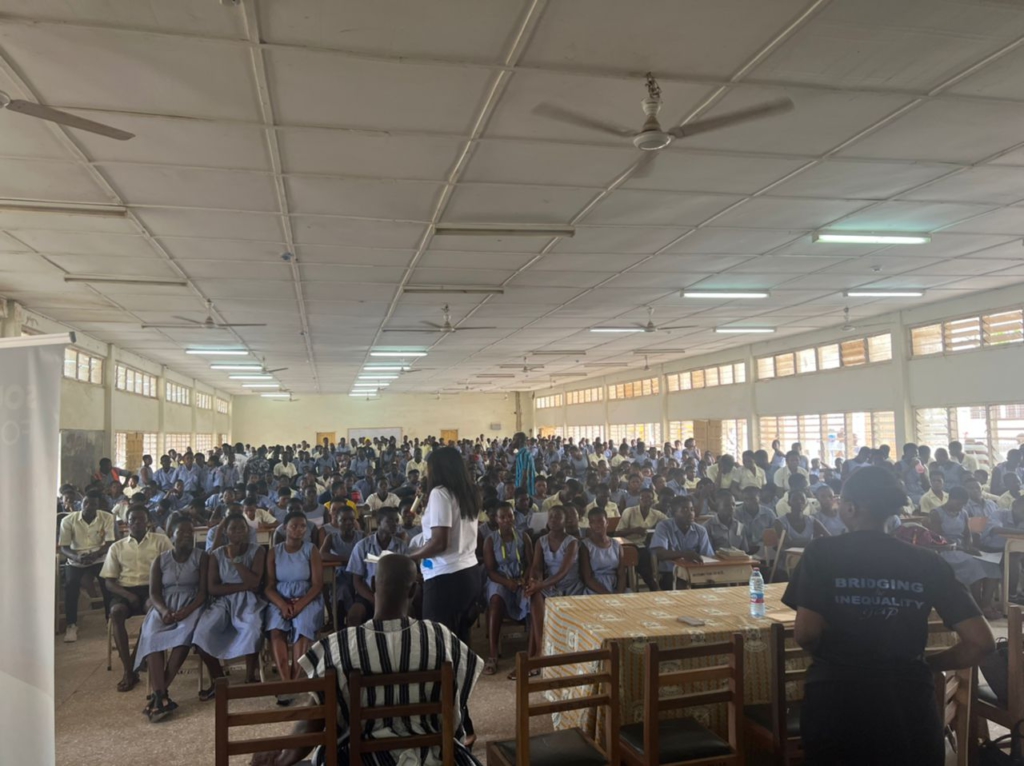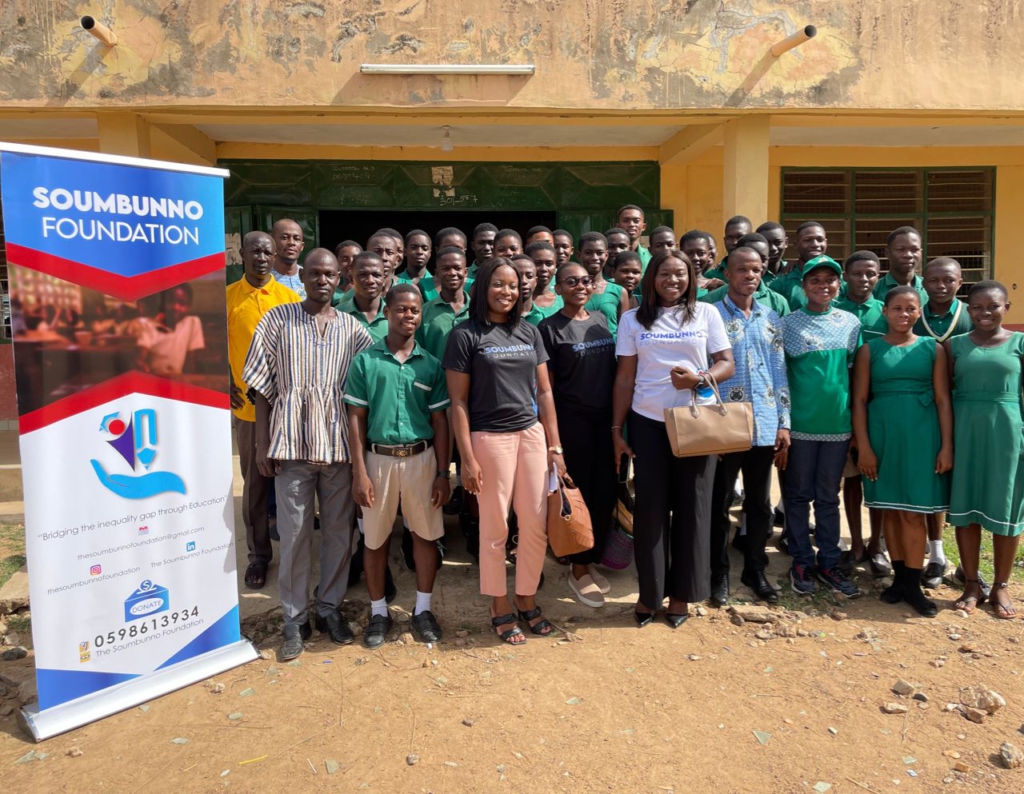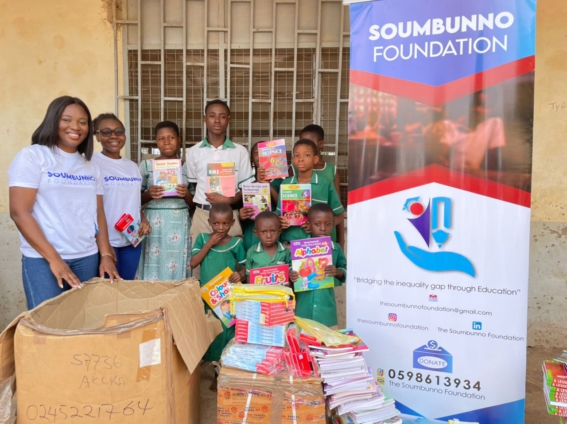
Audio By Carbonatix
Some students in the Upper East region could not contain themselves after members of the Soumbunno Foundation inspired them on career and other life choices.
“I was considering going to nursing or teacher training college after completing Senior High School, but having listened to you, I now know I have more career options. I’m truly inspired", a final year Arts student of the Bongo Senior High School in the Upper East Region said.
She was one of the thousands of students from four senior high schools in the region who benefited from a two-day career guidance talk conducted by two young lawyers under the auspices of Soumbunno Foundation, a non-profit organization, with support from the Regional Maritime University.

Themed: “WeTalk,” a component of the “Build a Child’s Dream” project, the programme focused not only on the courses available in the various universities – both local and abroad – but also offered insights into career excellence and unveiling the secrets to success.
The beneficiary schools were Bolgatanga Technical Institute in the Bolgatanga Municipality, Gowrie and Bongo Senior High Schools in the Bongo District, and Kongo Senior High School in the Nabdam District.
In all, over 4,000 final-year students from the schools participated in the programme, with the schools receiving a donation of books to support teaching and learning. An additional donation of books and other stationery was made to the Soe Basic School in the Bolgatanga Municipality.

Ms Maritha Adaare, the Executive Director of Soumbunno Foundation, and a Maritime Lawyer, explained that the “We Talk” project is a product of the recognition that the social and economic inequalities in the country is largely a function of education and the career choices students, especially in deprived communities make. The organization is conducting further research into this area.
She was hopeful the project would impact positively the students and help guide them to walk the right career path.
“We are hoping that at the end of this programme, the students will have a broader understanding of which careers they want to pursue and how to walk that path.”
Ms Adaare in her engagement with the students advised the students against choosing careers in areas they are not sufficiently passionate about, insisting the only way to excel in a chosen career is to have passion for it.

For her part, Atchere Asuah-Kwasi, the Director of Operations at the Institute for African Women in Law (LLM international children’s right), who doubles as the consultant for the “WeTalk” Project, reiterated the need for the students to put in their best and invest time in their academic work. She told the students that excelling in their academic work was the first step towards leading a meaningful and productive life.
Ms Asuah-Kwasi also touched on the need for the students to be confident and ready to take up challenging tasks to prepare themselves for the future.
She said, “One of the challenges I have observed is that some of the students in deprived areas don’t believe in themselves. They do not have confidence. But being confident is one of the things that helps you to study well and even helps you to be successful in life. So, one of the things I have told the students is for them to be confident and believe in themselves and not let fear stand in the way of who they want to become.”
Touching on building and maintaining peace in second-cycle schools, Ms Adaare urged the students to learn to tolerate each other and coexist peacefully devoid of ethnic biases and stereotypes. She noted that being tolerant of others was an important virtue to achieving academic success and life after school.
Matilda Obeng, the Marketing Assistant at the Regional Maritime University, said the partnership with Soumbunno Foundation was to help create awareness about maritime education, its importance and accompanying opportunities, and position them in the minds of students in the Northern parts of the country which is lagging behind in maritime education.
She said the North bordering countries such as Burkina Faso, Benin, Ivory Coast and Togo, were well positioned to play a leading role in maritime education even though they are not coastal areas.
She, therefore, urged the students to take their studies seriously to be able to enrol in the Maritime University to enjoy the numerous benefits of maritime education.
The two lawyers said they were deeply concerned by the deplorable state of some of the which lacked the barest minimum facilities required for any meaningful teaching and learning.
Kongo SHS, for instance, has neither a library nor an ICT laboratory for use by students.
“In this era of the information society, it is frustrating and depressing that a high school will lack such basic but critical facilities. How can these students effectively compete in the world?" Ms Adaare queried.
Latest Stories
-
Tamale Chief commends IGP Special Operations Team for crime reduction efforts
1 minute -
None of NPP’s 5 flagbearer aspirants is credible – Abdulai Alhassan
29 minutes -
Police arrest suspect for unlawful possession and attempted sale of firearm
2 hours -
3 arrested in connection with Tema robberies
2 hours -
Your mouth on weed is nothing to smile about
2 hours -
25% university fees hike, what was the plan all along? — Kristy Sakyi queries
4 hours -
Some OMCs reduce fuel prices; petrol going for GH¢10.86, diesel GH¢11.96
4 hours -
Trump says health is ‘perfect’ amid ageing concerns
4 hours -
China’s BYD set to overtake Tesla as world’s top EV seller
4 hours -
Joy FM’s iconic 90’s Jam returns tonight: Bigger, better, and packed with nostalgia
5 hours -
Uproar as UG fees skyrocket by over 25% for 2025/2026 academic year
6 hours -
Japan PM joins fight for more female toilets in parliament
7 hours -
Ga Mantse declares war on fishing industry child labour
8 hours -
Adom FM’s ‘Strictly Highlife’ lights up La Palm with rhythm and nostalgia in unforgettable experience
9 hours -
OMCs slash fuel prices as cedi gains
10 hours

